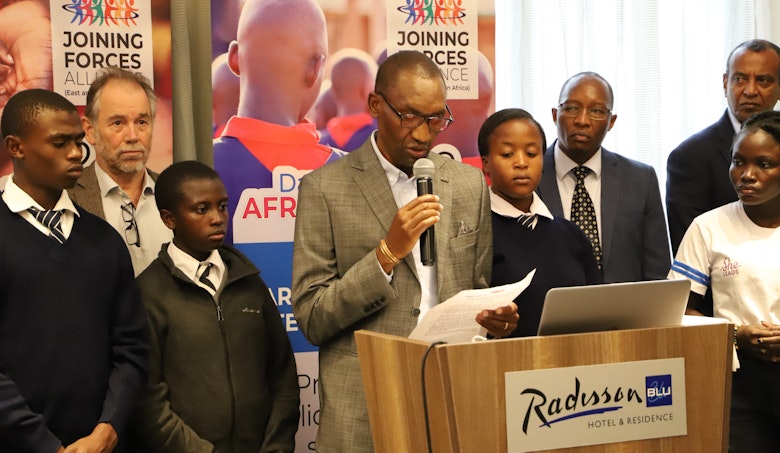Governments must develop & implement policies and laws that protect children from harmful practices
On Thursday, June 16, we celebrated the Day of the African Child, a day to remember school children who marched in Soweto, South Africa in 1976 demanding for their right to be taught in their own language. The African Committee of Experts on the Rights and Welfare of the Child (ACERWC) has selected the theme: ‘Eliminating Harmful Practices Affecting Children: Progress on Policy and Practice since 2013’ for this year’s commemoration.
This commemoration presents an opportunity to assess progress on the adoption of policies that support the African child. It also presents a platform for recommending action against harmful practices that affect children. Among the most prominent harmful practices affecting children in Africa are child marriage, female genital mutilation, child labor, and various emerging forms such as online child sexual exploitation and abuse of children (OCSEA).
Persistent violations of child rights in Africa
Despite efforts by governments and other stakeholders to address harmful practices, we are concerned about the slow pace of progress and the challenges the African child continues to face. A vast majority of children in Africa, especially girls are still married at a tender age. According to UNICEF (2022), 3 out of 10 young women in Eastern and Southern Africa were married before age 18.
The United Nations Population Fund (UNFPA 2022) estimates that the number of girls undergoing female genital mutilation each year is projected to rise from 4.1 million in 2019 to 4.6 million girls in the year 2030 with a vast majority coming from Sub-Saharan Africa. There is an increase in cases of online child sexual exploitation and abuse that have come with increased access to digital platforms and devices by children. For example, findings from Disrupting Harm research in Kenya reported that between 5 and 13 per cent of children who use the internet, aged 12-17, reported experiencing online exploitation and abuse (ECPAT, INTERPOL and UNICEF, 2021).
The situation has been exacerbated by the ever-increasing humanitarian emergencies caused by conflict and natural disasters, the COVID-19 pandemic, exclusion of women, girls and young people from policy and decision-making processes and poor implementation of the developed policy frameworks.
Recommendations
In this regard, Joining Forces, East and Southern Africa makes the following recommendations.
We call upon national and sub-national governments in Africa, in partnership with academia, and civil society, including those working with children and young people, media, community leaders, and faith-based organizations, to:
- Develop and implement policies and laws that protect children from harmful practices and allocate and cost budgets for child protection.
- Tackle the challenges that perpetuate the violation of children’s rights, such as gender inequality, discrimination, poor access to education and poverty.
- Strengthen legal and justice systems to protect the rights of children especially girls and take decisive action against those who perpetrate violence against children.
- Involve young people and girls in policy and decision-making process by ensuring that their voices are heard and considered in all aspects touching on their lives.
About Joining Forces
Joining Forces (JF) is an alliance of the six largest child-focused international NGOs namely: ChildFund Alliance, Plan International, Save the Children International, SOS Children’s Villages International, Terre des Hommes International Federation and World Vision International. For more information, visit www.joining-forces.org

